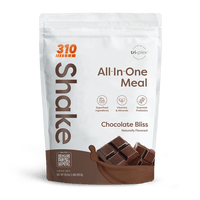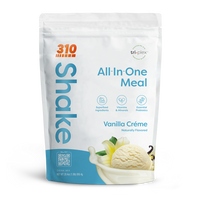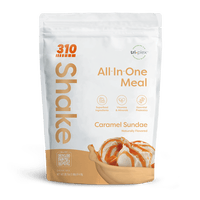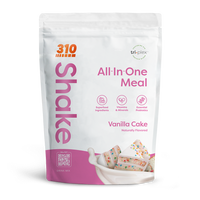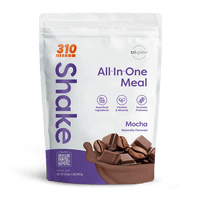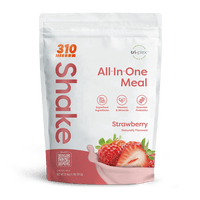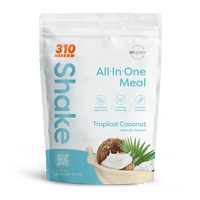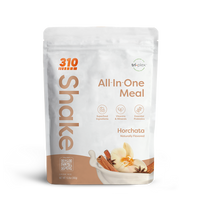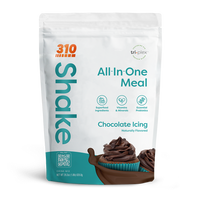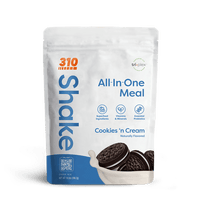Have you noticed that lately you’re sweating more, or even worse… producing an unsightly body odor that you didn’t have previously? It can be frustrating when your body goes through changes and you can’t figure out the reason, especially when you’re making every effort you can to eat a healthy diet and make good lifestyle choices.
So, what’s with the extra stinky sweat? In this article, we’ll give you the run-down on what sweat actually is, what produces body odor, and reasons why you may be experiencing a stronger smell, with suggestions on what you can do.
You’re not alone when it comes to body-related topics that you need answers to… We’ve got you covered in our series of “Real Talk” articles to help you address often undiscussed health questions. Read on to learn more!
The Real Deal: Body Odor vs. Sweat
Let’s discuss the difference between body odor and sweat, because if you didn’t know already, they’re two different things!
Even if you sweat profusely, your actual sweat is not what’s causing you to stink. That’s because your actual sweat is odorless! Sweat is a mixture of water from your body mixed with salt that your body brings to the surface of your skin as a reaction to heat. This is a way that your body helps regulate your temperate, as the water on your skin surface evaporates and cools your body. (1)
On the other hand, body odor can be an umbrella term for a number of natural smells that come from your body. The one you’re most familiar with and the one you’re referring to when you say that you have “smelly sweat”, is actually what happens when bacteria on your skin meets your sweat! (2)
The bacteria breakdown protein molecules in your sweat, and the process results in a typically unpleasant odor. Let’s look at it a little closer in a quick and informative science lesson…(3)
Your skin contains two different sweat glands: eccrine and apocrine. While eccrine sweat glands regulate body temperature throughout your body, they aren’t linked with body odor.
On the other hand, apocrine glands – which have a large concentration in the armpits and groin – cause the body odor. These glands start to function at puberty (which is why younger kids typically do not produce a body odor from sweating!), and are also associated with hair follicles in those areas of your body. (4)
Extra Stinky Situation?! 7 Reasons for Body Odor Change

Now that you know the science behind your sweat and what’s actually causing your stink, let’s take a look at what could be causing an extra stinky situation, from your diet or other factors.
-
Pungent Veggies/Spice
Even when you eat a healthy diet, certain foods may cause more body odor than others, and it’s helpful to be mindful of what these foods are.
If you’ve suddenly taken a liking to spicy foods, or you’re trying to eat more vegetables, you want to make sure you don’t overload on certain ingredients.
Here are some foods that may cause more of a stink:
Garlic & Onions
Though they may bring wonderful flavor to your meals, the pungent aroma of these veggies is something your tongue will appreciate, and then your body will replicate!
This is because these foods are rich in sulfur-like compounds that, when metabolized by the body and meet with the bacteria on your skin, result in body odor that may smell worse than usual.
For people who cook with a lot of garlic and onion, anecdotal reports say that you may be able to carry the smell of those veggies on your skin – even for up to 48 hours! Or, until your body fully breaks down the compounds of those foods. (5)
How does a body odor that smells like onions or garlic sound?!
But wait… there’s a bit of good news! According to some research, the antibacterial properties of garlic may actually help destroy some of the odor-causing bacteria on your skin, making your body odor smell better and less intense.
In one study, those who ate extra garlic were actually found to have more pleasant body odor than those who ate a normal amount of garlic. Though this does not do anything significant for your garlic breath! (6)
Cruciferous Veggies
Speaking of sulfur-rich veggies, you can add cruciferous veggies to that list – including broccoli, cauliflower, Brussel sprouts, and cabbage. Mostly anecdotal evidence also shows these veggies produce a stinky situation (through breath, sweat, or gas after eating).
Spicy Foods
Next, spicy foods – which includes foods that use any type of hot peppers or spices like cumin or curry – can also pump up the body heat, and therefore the body odor.
Understandably, anything that raises your body temperate will also increase your sweating, and the bacteria-eating process that leads to body odor.
In addition, with spicy foods, there are unique gases that can be released through the pores of the skin, increasing your smell, but this may only last a few hours. (7)
WHAT TO DO:
When it comes to the foods above, the fact that they may increase body odor is absolutely not a reason to stop eating them! As they are some of the healthiest foods for you, rich in antioxidants, nutrients, and fiber.
And for spicy foods, they can help boost your metabolism, control appetite, speed up digestion and more.
Instead, it’s just helpful to keep in mind not to overdo it with any of those foods, especially if you notice more body odor when you eat them in abundance.
-
Meat “Sweats”

Next, just like there are certain “potent” veggies that may contribute to more body odor, have you ever heard of “meat sweats”? Animal protein – including chicken, steak, processed meats and more - is the one of the hardest things for your body to digest. So it only makes sense, then, if you overload on eating meat, you’re going to sweat it out heartily, especially at night. And all that sweat can lead to extra body odor. (14)
WHAT TO DO:
If you eat so much meat that your body literally needs to sweat it out until you feel better, that’s a good sign you ate incredibly too much animal protein.
While many of us associate “protein” in general with “animal protein”, there are many excellent plant-based sources of protein that you might be missing out on. Many people on keto or low-carb diets often make this mistake and end up eating too much of the wrong kinds of proteins that are high in saturated fats.
Instead, get a good majority of your protein from plant-based sources like beans, peas, rice, oats, lentils and more. A great way to get the protein you need in a nutritious, wholesome and plant-based way is with 310 meal replacement shakes.
-
Sweets Overload
Next, you already know an excess of sugar is bad for you, and now there’s another reason to add to your list to avoid it. The bacteria on your skin that causes body odor loves the sweet stuff! When the bacteria on your skin interacts with the sugar it actually changes the chemistry of your perspiration, creating an unpleasant smell. (8)
WHAT TO DO:
Greatly cut down on everything that contains refined sugar, and this includes processed foods and sugary drinks. Making the switch to fiber-rich fruits as a “sweet” snack, and healthy drinks like tea, naturally-sweetened lemonade, and sugar-free juices can make a huge difference in your health, your waistline, and reducing body odor.
-
Alcohol “Sweats”
Having more late nights out with friends? Even though sweat itself doesn’t produce an odor, sweating more DOES, and drinking excess alcohol can absolutely make you sweat more. It takes a lot for your body to metabolize alcohol, and this raises your body temperature…. and the raised body temperature creates excess perspiration, which then leads to body odor. Drinking outside in the heat can make the situation worse and put you at risk for dehydration. (9)
WHAT TO DO:
If you’re going to drink, do so in moderation, and make sure you’re replenishing not only your H2O but also your electrolytes, especially when outside in hotter weather. You can also skip the alcohol and go for delicious mocktails that support your weight loss goals.
-
Hormonal Shifts

Especially for women, hormonal shifts can also cause excess sweating and therefore body odor. And this can happen at different periods in life. Starting as early as puberty (one that affects both sexes alike), fluctuating hormones during this intense teen growth phase can cause a spike in body temperate that can lead to excess sweating and accompanying body odor.
Women who are pregnant have much higher levels of hormones in their body and also deal with more intense sweating both during the day and also at night. And later in life, during perimenopause and menopause, women may experience “hot flashes” and “night sweats” which could both lead to increased body odor. (8)
WHAT TO DO:
Varying hormone levels due to different occurrences in the body are totally natural. See our list of suggestions for regulating body odor lower in this article.
-
Extra Stress
All of us experience different ranges and levels of stress, with some time periods that are higher in stress than others. But especially stressful situations where you are feeling anxious can rev up the hormone cortisol in the body, causing lots of activity in your sweat glands.
If you remember the difference in your glands, a situation such as being extra stressed or upset will activate your apocrine glands – or the ones that are linked with the bacteria on your skin and end up in smelly body odor. (8)
WHAT TO DO:
Try as much as you can to keep yourself in balance throughout the day. Manage high stress situations with regular exercise and a healthy diet, meditations, and mindfulness, or the practice of being present instead of “lost in thought” in your head. Also learn to lean on the side of positivity in situations.
-
Nutrient Deficiencies
Believe it or not, lacking in certain essential nutrients within your body may also be a reason that you’re suddenly producing more body odor. Two of the biggest culprits that you don’t want to be low in are the minerals zinc and magnesium.
It’s actually very common to have low levels of both of these minerals, though certainly not ideal. And both of them are important for your body's natural detoxification process - which can also help reduce body odor. (10, 11)
WHAT TO DO:
Make sure you get enough zinc and magnesium in your diet from nutritious whole foods. For zinc, some great sources include oysters, beef, chicken, chickpeas, beans, whole grains, and milk products.
For magnesium, dark leafy greens, beans, legumes and nuts are great sources.
When it comes to "body odor supplements", you could also help fortify your healthy diet with these minerals in supplement form. For instance, our 310 All-In-One Shakes contain 30% of the recommended daily requirement of both magnesium and zinc in one serving.
And 310 Vitamin C Powder contains a mega-boost of zinc along with electrolytes and vitamin C for immune defense.
Control It: Body Odor Regulation Plan

So with all that you just learned, what’s the best way to regulate your body odor to help prevent some embarrassing situations… all while ensuring you don’t boycott some of the heathiest foods because they may increase your stink?
Here are some key suggestions for your personal body odor treatment plan…
Wear “breathable” clothes
What you put on each day works either for you or against you in the battle against body odor. This is because some fabrics are more “breathable” than others… including natural fabrics like cotton, wool, and linen.
In contrast, more synthetic fibers (including polyester, nylon, and rayon), keep your sweat trapped on the surface of your skin as a breeding ground for bacteria. (12, 13)
Choose your deodorant wisely
You may not realize this, but some underarm products can actually make your stinky sweat problem even worse!
There’s a difference between deodorants and antiperspirants…. While a deodorant is designed to help mask body odor (often with a fragrance), antiperspirants are designed to help reduce sweating. Often, you’ll find both of these together in one product.
The problem is that ingredients in some antiperspirants, (and even in some other personal care products!), can end up giving you more body odor! One of these ingredients that you’ll find in antiperspirants, aluminum, can alter the balance of bacteria in your armpits, leading to a greater smell. (8)
Clean with antibacterial soap
Ideally, aim to shower at least once a day (or even twice if you live in a very hot or humid place). And opt for an anti-bacterial soap or shower wash which can help reduce the bacteria on your skin that leads to body odor. (13)
Balance your diet & keep it fresh
Finally, keeping in mind the foods that can cause some extra body odor, remember to keep balance in your diet – and focus on a whole foods diet rich in fresh fruits and veggies first.
When it comes to “smelly” veggies like onion, broccoli, etc. – don’t cut them out! Just keep them balanced with other healthy, less smelly foods.
Also remember that when it comes to getting enough protein in your diet, don’t always turn to animal proteins, so you don’t overdo it on the meat!
Need more of an incentive to build your diet around fresh and colorful foods?
In one research study, it was found that vegetarians had a more attractive and pleasant body odor than meat eaters! So piling up on meat isn’t good for your health or your body odor problems!
Takeaway Message on Body Odor
When it comes to your overall health, having a bit more body odor is not something to stress about! Though it can be annoying and uncomfortable, it is typically manageable with the right knowledge.
By putting into practice the suggestions mentioned in this article, you can enjoy a healthy and happy lifestyle while keeping yourself mostly sweat and odor free! But any time there’s an extra stinky situation, don’t fret - there are much bigger health concerns to battle!
Want more real advice for your healthy diet and lifestyle? Check out the Real Talk section of the 310 Blog!



